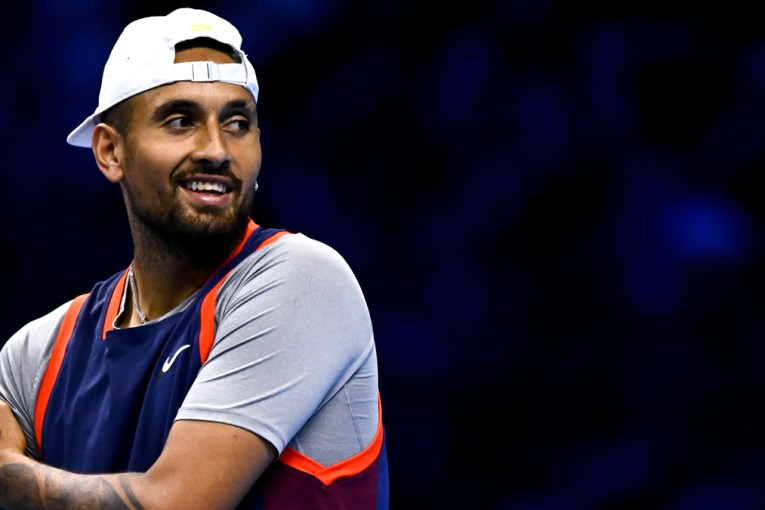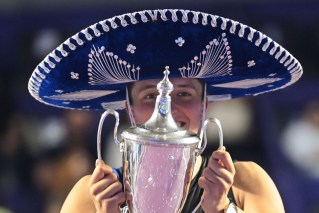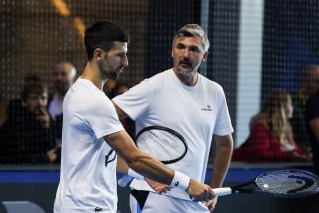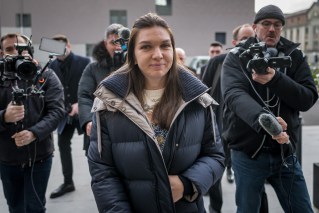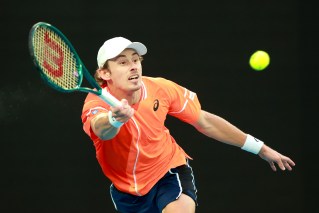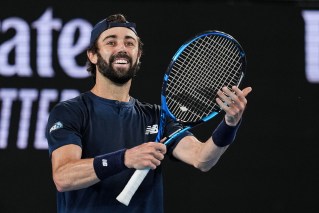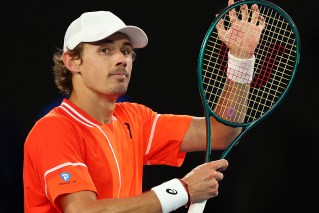Pro’s choice: why Lleyton will know when it’s time


Getty
There are few things sports journos love more than a good retirement.
The drawn out press conference, alongside a manager or coach. The wife and kids standing in the wings. A few jokes to bury hatchets with assembled scribes, the inevitable tears. Ruminations on the sporting life that was. The standing ovation as they wave farewell.
We get to wax lyrical, using words real people don’t, like ‘legacy’.
• Shockwaves as Federer sent packing
• Centre court snub continues for Kyrgios, Tomic
It’s perhaps the reason we’re so keen to sound the death knell on sporting careers while the athlete isn’t quite ready to call it a day.
We love to speculate about when the end may come. Sports people, understandably, get annoyed when continually questioned on when they’ll be finishing up.
After Lleyton Hewitt’s five-set loss to Benjamin Becker on Thursday night, journalists tried to coax an answer from the 33-year-old South Australian.
“When you left the court, did you take an extra moment tonight at all?”
“You said you didn’t look around when you left the court. The television replay showed at the last sit-down, changeover, you were looking around, taking everything in. What was going through your mind then?”
“As usual, there will be a lot of speculation about your future now. What’s next for you?”
And so it went.
Some of it, no doubt, stems from a slightly romantic notion that we don’t want to see a proud, old champ beaten by men he’d have whipped with his eyes shut in his youth.
While his own decline has not been as protracted as Hewitt’s, Roger Federer’s loss at the hands of Andreas Seppi brought into stark focus just how the 33-year-old is no longer the player he was.
No journalists were brave enough to directly quiz Federer how close he felt to the end, mind you, such is the respect 17 grand slam titles commands.
With the exception of combat sports, where I’m all for urging retirement when a competitor’s physical decline can result in a diminished neurological condition, an athlete in an individual sport should compete until he’s had enough.
If the will’s there, then why not?
(Team sports are another conundrum, with older players sometimes hanging on too long when the best thing to do would be accelerate the development of a younger player.)
Hewitt’s favourite movie character is Rocky Balboa – the underdog, the club fighter from Philadelphia who is given a shot at the heavyweight championship and shocks the world.
It’s exactly where Hewitt’s at now – outsized, outgunned, unfancied and unfashionable. Yet that fire is still as fierce as it ever was.
He probably hears Bill Conti’s iconic score blaring in his ears as he’s walking out for each match, telling himself that he can shock the world too.
When should he retire? When he’s good and ready. He’s still ranked in the top 100, still capable of playing very good tennis.
With Hewitt, one gets the feeling it’s not the winning he’s addicted to, but the thrill of the fight. Rising up to the challenge of his rival.
He’s hanging tough, staying hungry. Just a man, and his will to survive.
There’s something in that for all of us.
